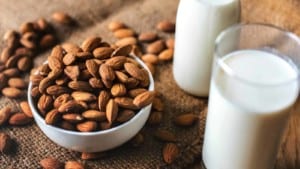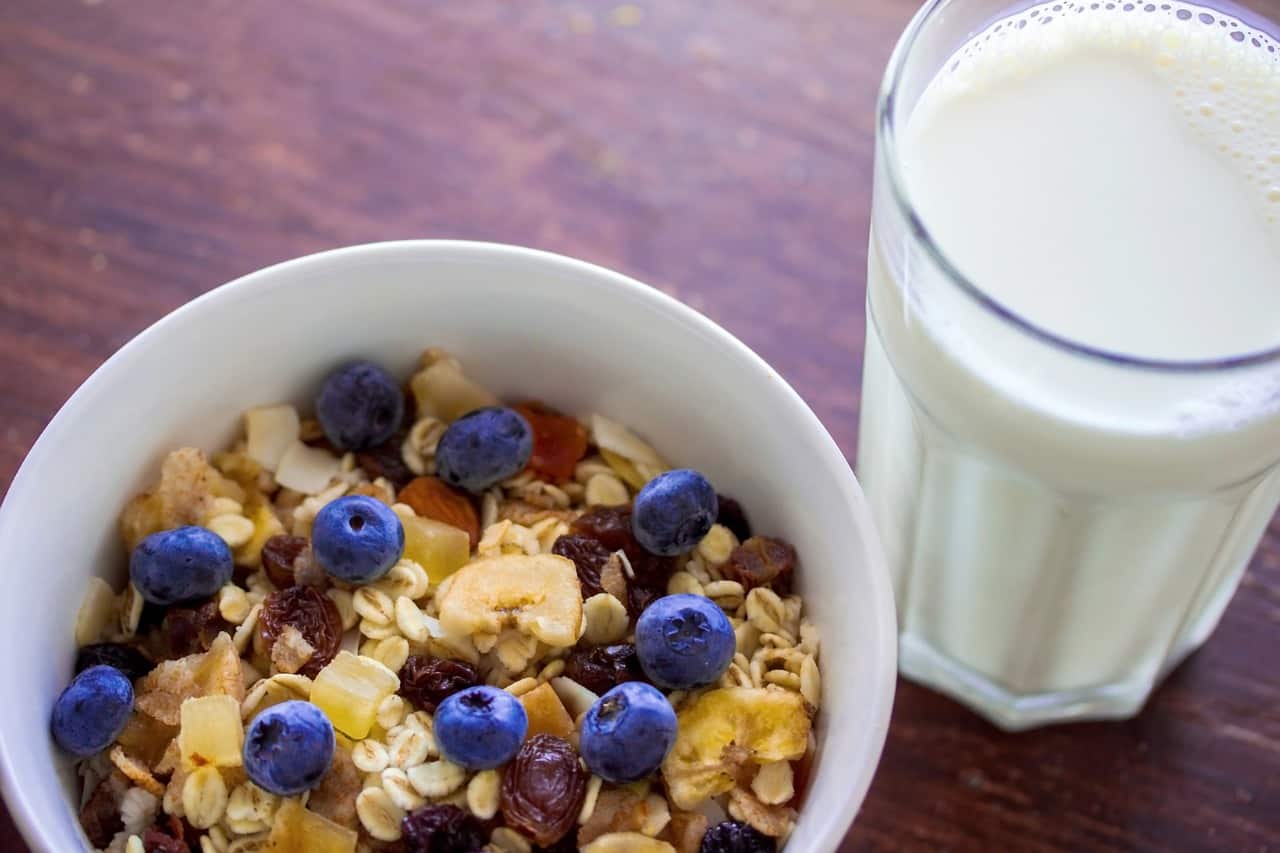Plant-based kinds of milk are increasingly in demand. One of them is oat milk. Because more people are turning to vegan alternatives to their favorite milk products, milk made of plants are sought after for their fine and sweet taste that distinctly resembles cow’s milk. Plant-based milk can be made from oats, nuts, and even coconut.
Plant-based kinds of milk are all different in taste and are much finer in consistency than actual milk. They are commonly fortified with other minerals and vitamins to increase their benefits and nutrient value.
Oats are often used to create dairy-free milk as oats are grown in large quantities, are readily available, are easy to make into milk, and contain various perks. They have few allergens in their content with the exception of gluten. Some oat strains do not contain gluten which makes them suitable for people with gluten intolerances.
Oat Milk Benefits
Oat milk has some health benefits that come from the oats it is made from. Other than that, the milk sold commercially is additionally fortified with important vitamins and minerals. Here are the benefits of drinking this milk substitute.
Vitamin B Source
There are a couple of representatives of the vitamin B family. They are important for the health and functioning of the body. Various vitamins of the B group are classified under a single denominator because of their ability to boost your mood, promote healthy nails, skin, and hair, and stop oxidative stress.
The oat milk that can be bought at stores is fortified additionally with the vitamins of the B group. Usually, the ones that are added are riboflavin (B2) and vitamin B12 as they tend to be lacking in our diets.
Vitamin B12 is a rare type of vitamin that is rarely found in our food sources. It is important for DNA synthesis and the formation of healthy red blood cells. It is also important as a supplement for those that follow a strictly vegan diet. (1)
Lower Blood Cholesterol
The milk of oats is rich in a soluble fiber by the name of beta-glucan. This fiber has a gel-like consistency once it enters the gut. It then binds to unhealthy cholesterol that is consumed with food. The fiber prevents the body from absorbing cholesterol.
This effect of the beta-glucan can decrease overall blood cholesterol levels. A low cholesterol level is great for the health of the heart and the health of the arteries and veins.
According to studies, drinking 3 cups of this milk daily can show a 5% reduction of bad cholesterol in the blood after 5 weeks of drinking. A single cup of this drink can provide as much as 1.3 grams of beta-glucans. (2)
Great for Vegans and People Allergic to Various Foods
Those that have some sort of dietary restriction but still love a morning with a cup of milk can turn to this drink. Oat milk is entirely vegan, has no nuts, soy, or lactose inside.
Some brands that make the milk use gluten-free oats. Check the labels to make sure that the product you are getting is free of gluten if that is your wish. Also, you can find gluten-free oats and make this milk yourself.
Bone Health
Plant-based milks are often fortified with vitamin D and calcium. Both of these are added to improve the health of the bones. Calcium is the mineral that is mostly what our bones are made up of. Vitamin D is important in the utilization of this mineral and the density of the bone.
Vitamin D is not found in most other foods. It is produced by the body when you are exposed to sunlight. If you live in a cool region that does not see a lot of sunshine or do not spend too much time outside, you need to get your daily dose of vitamin D in supplement form.
Thankfully, oat milk is fortified with vitamin D. The other way that oat milk benefits bone health is the added vitamin B12 inside. This vitamin is important for higher bone density and bone health.
Nutrition Facts
Oat milk is high in nutrients. It is a good source of fiber as well as some other vitamins and minerals. Have in mind that the milk bought at the store is more nutritious because of the added vitamins and minerals inside. Still, the milk that you can prepare at home has some very important elements inside of it.
To get an idea, here are the nutrients found in a single cup of this milk (240 ml):
- Calories: 120
- Fat: 5 grams
- Carbohydrates: 16 grams
- Fiber: 2 grams
- Protein: 3 grams
- Vitamin B12: 50% of DV
- Calcium: 27% DV
- Vitamin D: 18% DV
- Vitamin A: 18% DV
- Phosphorus: 22% DV
- Riboflavin: 46% DV
- Potassium: 6% DV
- Iron: 2% DV
When this milk is fortified, it is a rich source of nutrients. While it is less rich in nutrients when made at home, it is still a great source of fiber. It has more carbohydrates than the other types of milk on the market and less protein for the most part.
If you are looking for a milk that has less protein and more carbohydrates, this milk is the one for you. Unlike nut-based kinds of milk and soy milk which are high in proteins, the milk from oats is more on the carbohydrate side to provide you with a quick source of energy. Another reason you might want to choose it over other kinds of milk is that it does not contain allergy-causing ingredients that might be present in both soy milk and nut-based milk.
Potential Downsides
While the oat milk benefits are many, there are some downsides to this milk (or at least some of the types). There are some commercial brands that add sugar in the product to make it sweeter. This is why you should look for unsweetened versions of the milk.
Most of the milk on the market is not gluten-free. For those that are sensitive or allergic to gluten, this can cause some digestive issues. Those people who have a problem with consuming gluten should ensure that they buy a certified gluten-free drink.
While the milk made of oats is suitable for babies and children, it is not as nutritious as other drinks and foods to replace cow milk or breast milk. Before giving your child any alternatives to regular milk, consult with your pediatrician.
Another thing to consider is the budget you are on. Plant-based milk alternatives are generally more costly than cow’s milk. If you are on a budget, but still want to drink this milk, you can proceed to make it yourself at home.
Making Your Own Milk
The oat milk benefits can be experienced with the one you make at home. Another perk of this milk is that it is one of the easiest to prepare. When you prepare it at home, you are additionally choosing the best for yourself by avoiding any potential thickeners or additives found in some brands.
If you are sensitive to gluten, you can choose gluten-free oats to prepare this drink and be sure that you will do fine with it.

To prepare the milk, mix in a blender a cup of oats with three cups of water. Otherwise said, you will mix about 80 grams of oats with 700 ml of water. Once well blended, place the mixture in a cheesecloth and strain the water from the oats.
Once you have it in a container, store the liquid in the refrigerator to avoid spoiling it. You can have it in there ready for drinking for up to five days. If you want a more enhanced flavor to your drink, you can add a quarter of a teaspoon of salt or a teaspoon of cinnamon, vanilla, honey, or maple syrup.
Final Thoughts on Oat Milk Benefits
Oat milk is a great alternative for people who have chosen to avoid milk or have some sort of allergy to nuts, lactose (found in milk), and gluten (for the gluten-free oat types). People who suffer from celiac disease, irritable bowel syndrome, eczema, inflammatory bowel disease, or other conditions that are aggravated by dairy consumption can benefit from this milk alternative.
The other good news is that milk made from oats is a possible substitute to fermented milk products such as probiotics, kefir, and yogurt. The milk retains its nutrients in the process and enables the multiplying of probiotic bacteria on it.
Whether you are turning to this milk substitute for health or ethical reasons, you can always enjoy the taste of this creamy and silky milk. If you like to have it in different varieties, this milk allows for the addition of other sweeteners and substances to make it even more appetizing.












 Community
Community

